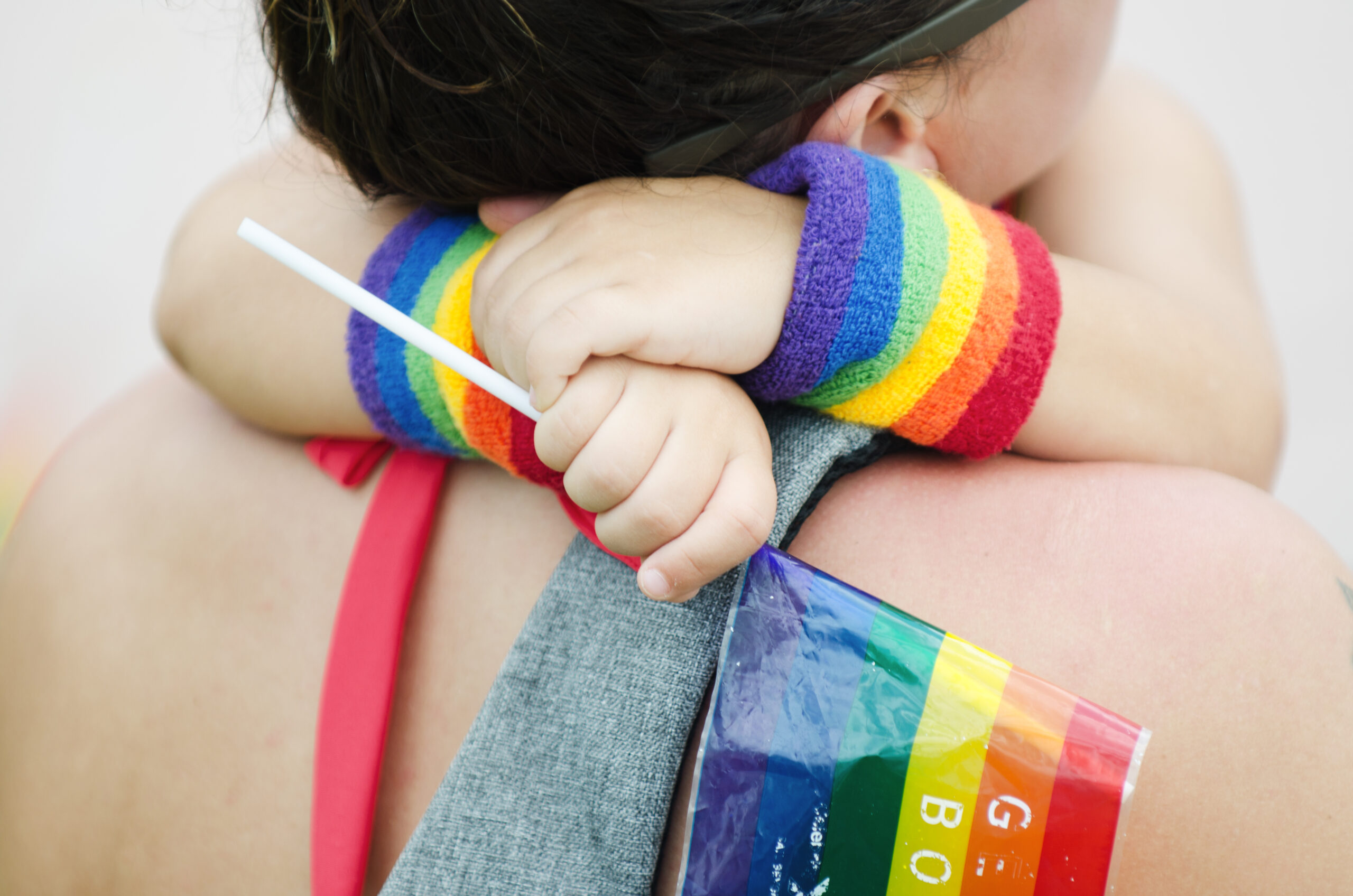
In the middle of the social revolution taking place within America, topics like race, gender, and sexuality become almost impossible to separate from parenting. To remove politics from parenting is to deprive a child of both an education and conversation that is desperately needed to stay current with the issues faced in today’s society. Inviting conversation on these topics can be intimidating, but allowing discomfort can result in a closer relationship with your child at the end of the day. In times like these, it's something I find myself wishing my own parents did.
At Wild Sky Media, we recognize that not all pregnancies and parenting journeys look the same. That’s why across all our sites — CafeMom, LittleThings, Mom.com, and MamásLatinas — we are committed to using inclusive language as much as possible, recognizing that all forms of parenting are valid and celebrating the shared experiences and unique differences among moms, dads, nonbinary and noncisgender parents, and all forms of caregivers.
When topics like sexuality and gender are introduced to parenting, it can be easy to feel lost in the conversation.
There’s no straightforward road to take when raising a gender diverse child, but there are definite routes to avoid — roadblocks that would hinder the relationship between you and your child, unnecessary fears and doubts that can end up hurting your child rather than helping.
A key concept to remember throughout your journey with your queer child is that they are still the same person, pre or post coming out, transition, and expression.
Additionally, keep in mind that your child knows themself better than anyone else, so never disregard their coming out. To them, coming out is a huge deal, they have made the choice to share something with you because they either feel comfortable enough to share this information, or they feel it is time you know.
When a child comes out to you, it really can make or break a relationship. You, as the parent, should take this as a great opportunity to grow the connection between you and your child. To disregard their coming out with doubts and fears over their identity can only make a child feel unsupported and rejected — even if that’s not your intention.
That doesn't mean that you need to say the right words all the time — it's OK not to know the right reassurances.
The conversation following coming out can be as complex as the concept of gender itself. Be open with your child, acknowledge insecurities on your behalf without making it their problem. If your child is mature enough to handle coming out to you, then they should be able to handle the questions and concerns you have, as long as they are just and reasonable.
Control your anxiety: Fear for your child’s well-being is more than understandable, but it's important to make sure that your feelings don’t become overbearing, or overtake the conversation.
At the end of the day, this is not about you, this is about your child. Don’t be their first bully after they put trust in you to handle their coming out.
The choice of coming out is never an easy one, and is usually only completed after weeks to months of consideration on your child's part. For a LGBTQ+ child, coming out is a first step toward adulthood and maturity, so celebrate coming out! Despite any doubts on your end, during this process, it's important that you maintain acceptance. Their gender identity, sexuality, or expression of either one should not hinder your ability to love and support them.
And, for the love of God, please, if you take anything away from this article, please do not tell your child “it's just a phase."
I’ve heard that one countless times, and unsurprisingly, I’m still transgender. Your child knows their identity better than anyone else, so take their word for it. Even if it does indeed turn out to be a phase, wouldn’t it be better to show that you are able to support them through anything?
I’ve experienced all this first hand — the days and weeks that followed my initial coming out to my own mother were weird, uncomfortable, but mainly unspoken.
In the months that followed, my gender identity was something that was swept under the rug, only talked about in private, usually failing to meet eye-to-eye. But now, nearly a year after my initial coming out, hope is starting to emerge, potentially one day my mom will be able to see for who I truly am: her son, rather than her daughter. But there are still days where I find myself wishing she accepted my identity rather than tolerating it.
Parenting is hard. Anyone, regardless of age, the number of children they have, gender, or race, can understand that much.
But being a child of a marginalized community can oftentimes be just as difficult. As the parent, they are looking to you for your support, and your continued love. Don’t be the person in their life to disappoint; repercussions of such can last far longer than you may realize. Queer children may always have friends and a loving community to back and support them, but what a child, no matter their background, will always need, is a parent behind them the whole time, just as any other child would.




